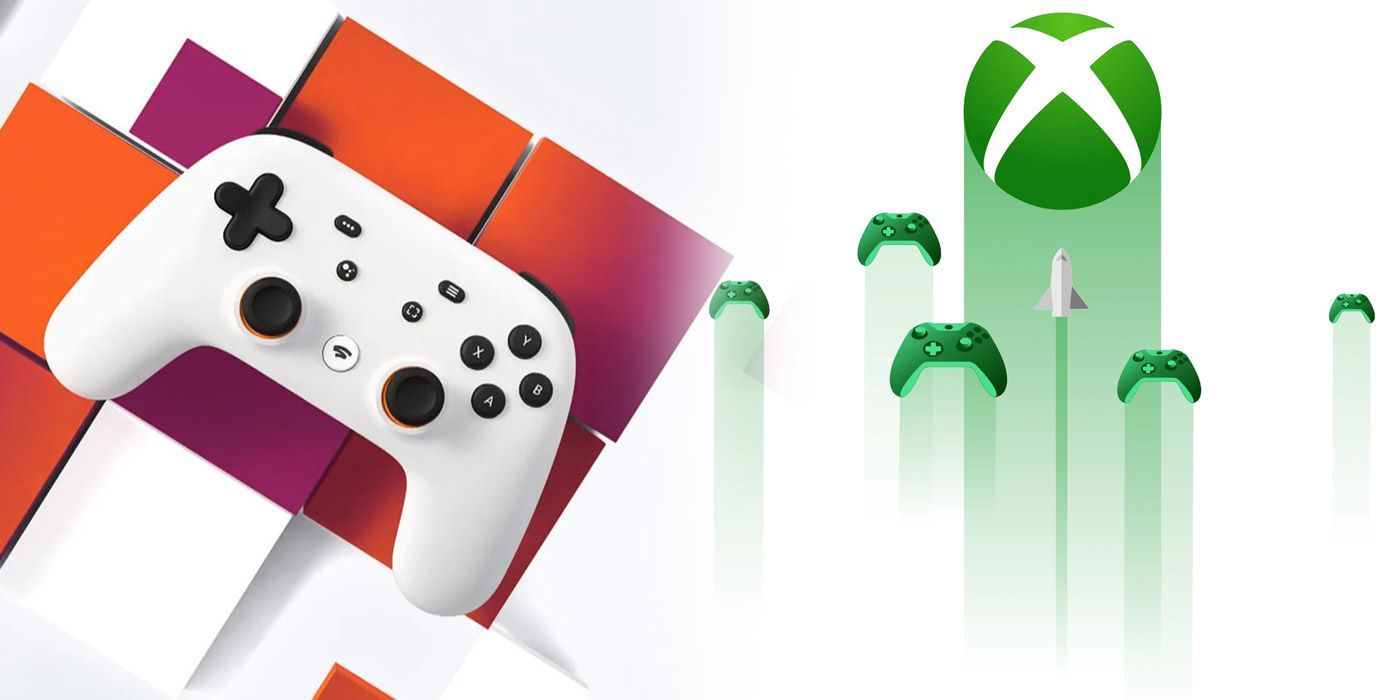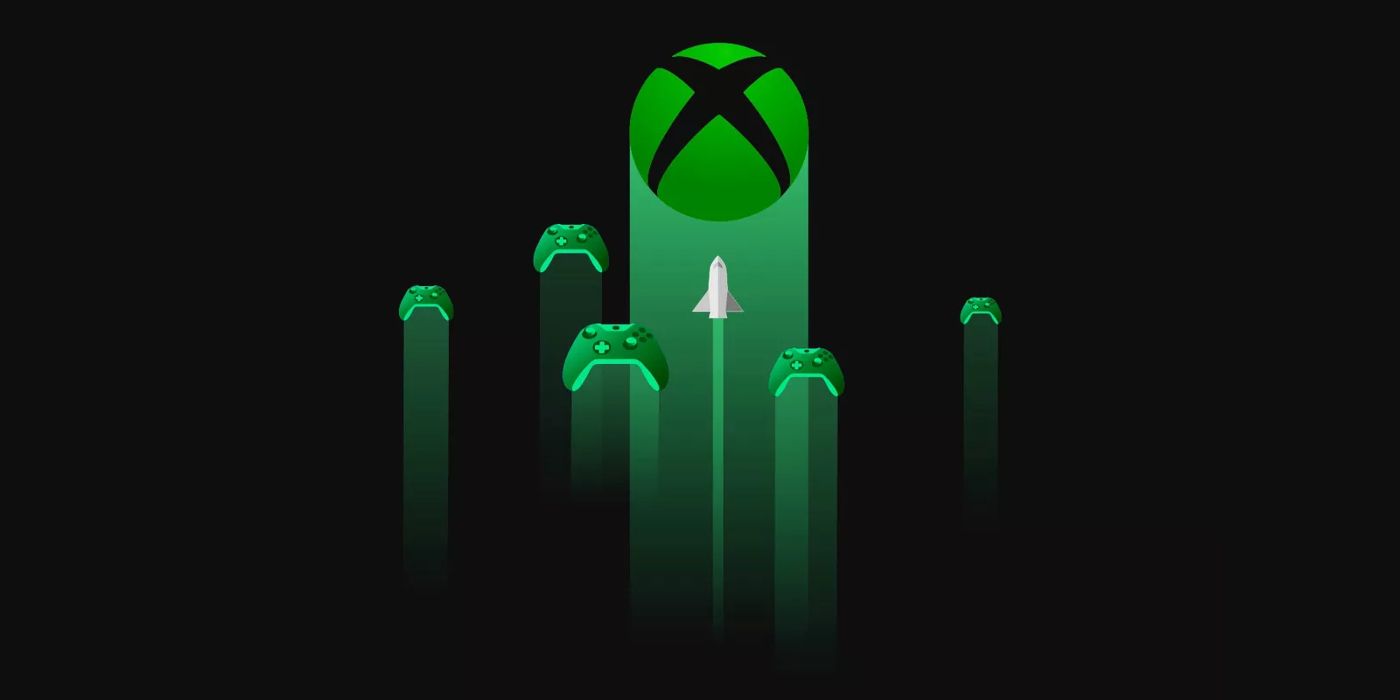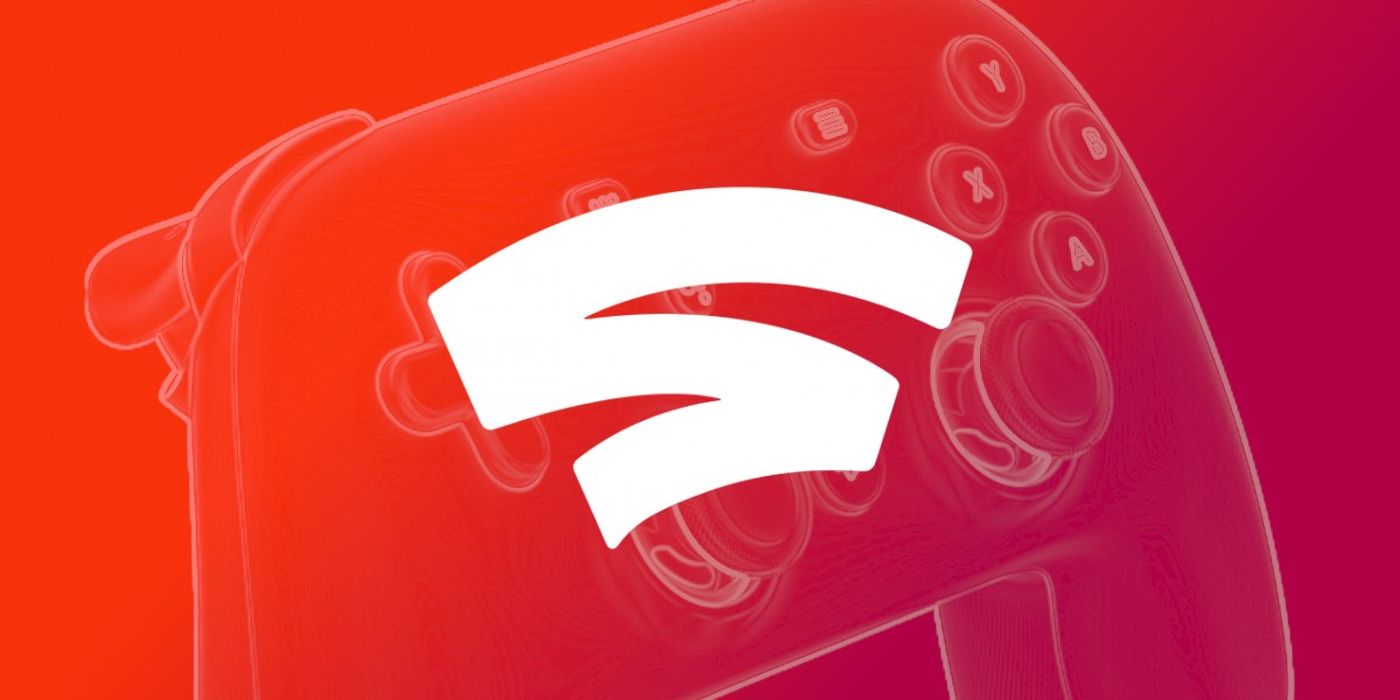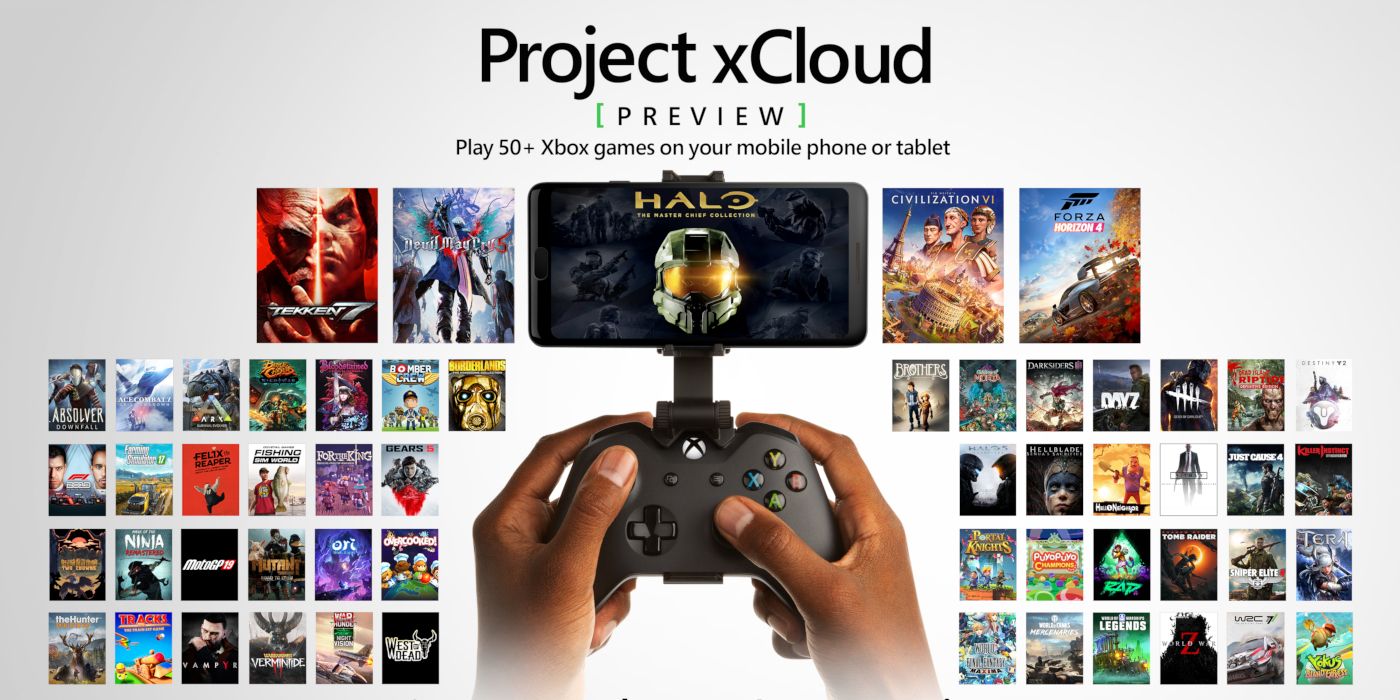Cloud gaming services have gained popularity over the past few years due to their accessibility and ease of use. Players are no longer limited by their hardware and cloud gaming allows them to use any device to stream their games. In particular, Google Stadia and Xbox Cloud Gaming have become two of the most recognizable services in the cloud gaming market and the technology has advanced greatly in a short span of time.
With Google Stadia and Xbox Cloud Gaming becoming two of the most popular cloud gaming services, users are undoubtedly curious about the differences between the two. Both services have their distinct features and advantages over the other, but ultimately, it comes down to personal preference. As cloud gaming is still in its infancy, there are also potential drawbacks that users should be aware about before deciding on the service that they would like to use. Nonetheless, both Google Stadia and Xbox Cloud Gaming offer interesting approaches to cloud gaming as the technology continues to evolve.
How Google Stadia and Xbox Cloud Gaming Work
While Google Stadia and xCloud are both cloud-based streaming services, they operate differently from one another. Google Stadia is marketed towards players who are looking to build another library as it requires them to purchase games from a store in order to stream them; in simpler terms, it's a full platform in and of itself. As Google Stadia was designed by Google, it makes use of the company's various data centers and strong backend hardware to stream up to 4K resolution at 60 FPS. Google Stadia is also integrated with YouTube which allows users to record or stream their game sessions there, alongside features like Crowd Choice and Crowd Play. Stream Connect lets players see their teammate's screens, and State Share lets players just into specific moments as captured by their friends.
On the other hand, xCloud is geared towards players who are looking to utilize a built-in game library as part of a platform. As xCloud is bundled together with Xbox Game Pass Ultimate, players will have access to the rotating catalog with hundreds of games. Microsoft's first-party titles are available as well which means users are able to play franchises like Halo and Gears of War. Best of all, users won't have to pay extra for the xCloud service as long as they have Xbox Game Pass Ultimate. This is where xCloud stands out in comparison to Google Stadia as its massive catalog easily surpasses the number of titles available on Stadia and its package deal with Xbox Game Pass Ultimate makes it the best value of any cloud gaming service on the market.
Availability of Google Stadia and Xbox Cloud Gaming
One of the main drawbacks with cloud gaming services is that its technology remains relatively new, and as a result, its availability is limited. While cloud gaming solves the accessibility issue of hardware, it comes with its own set of problems in regional access and it requires a strong internet connection. Picking between Google Stadia and xCloud depends heavily on where a user lives and how well their internet can handle streaming without latency.
Furthermore, both Google Stadia and xCloud have different platform availabilities so users will need to consider which devices they would like to use. Stadia is currently available on Android, iOS, Chrome OS, Chromecast Ultra, and through the Google Chrome browsers on PCs. On the other hand, xCloud is currently only available on Android devices, although it has recently released the beta for Apple devices and PCs. As a result, users are currently limited by xCloud's platform availability and will likely need to wait for the official rollout.
Streaming Quality of Google Stadia and Xbox Cloud Gaming
Another important distinction between the Google Stadia and xCloud services is in their streaming quality. Google Stadia is currently capable of streaming in resolutions of up to 4K at 60 FPS. In order to do this, users will need to have a minimum network speed of 35Mbps together with a Stadia Pro subscription. However, Stadia users with weaker network speeds can still stream at the regular 1080p/60 FPS settings as long as they have a network speed of 10Mbps.
xCloud is a little more limited in terms of streaming quality as it currently does not support 4K resolutions. This is because the current infrastructure for the xCloud is based on Xbox One S hardware. However, there are plans to upgrade the existing backend hardware to Xbox Series X later on this year which means that there's a good chance that 4K will eventually be supported. Nonetheless, xCloud is currently limited to 720p on Android phones which likely implies a default resolution of 1080p when the PC version releases.
Choosing Between Google Stadia and Xbox Cloud Gaming
It's evident that choosing between Google Stadia and Xbox Cloud Gaming will heavily depend on a players' preferences and needs. In general, Google Stadia offers a more robust cloud gaming experience by offering a diverse number of platforms it's available on and having the ability to stream in 4K resolution. While xCloud is limited by its platforms and streaming capabilities, it makes up for it with its sheer variety of games in its library and the fact that it's readily available for any Xbox Game Pass Ultimate subscribers.
Ultimately, the choice comes down to what users want out of a cloud gaming experience. Google Stadia focuses on creating a brand new library on a new platform aimed at users who don't want to use a console or additional hardware. On the other hand, xCloud focuses a little more on current users in the Xbox ecosystem who want to have another way to access the Xbox Game Pass library through their mobile devices. Either way, both services offer unique features and ease of accessibility for users looking towards cloud gaming.





